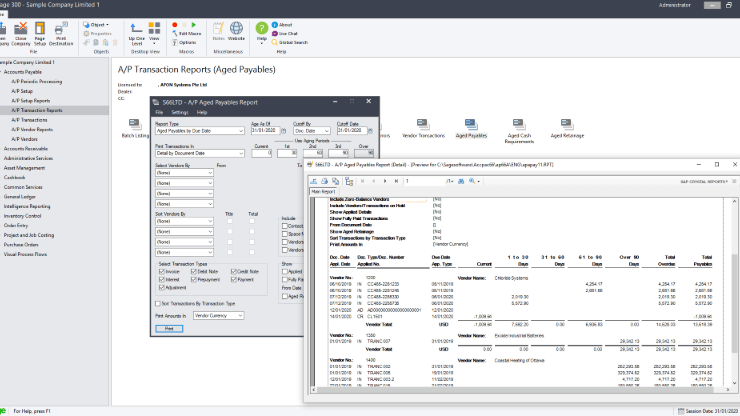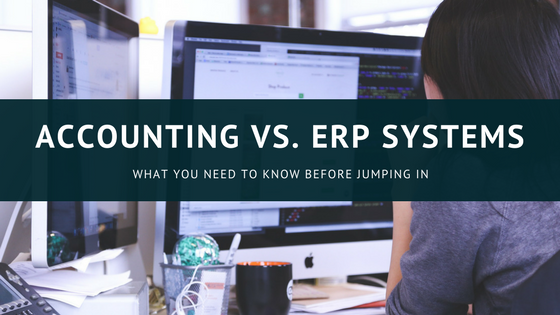According to a recent study, two of the three most significant barriers preventing businesses in the construction sector from increasing productivity levels are:
- delays in providing information to contractors, and
- inadequate pre-project planning and pre-work planning.
The COVID-19 pandemic has also laid an extra blow on the industry by affecting manpower, demand etc. This new layer of uncertainty has further complicated project management, job costings and resource management for construction projects.
Because of this, it's important construction businesses recognise they need to innovate and transform their business models to adapt to the new normal.
For a start, ERP software can help give your business a single source of truth into your business's processes to resolve common pain paints in your sector.
Let’s take a look at some of the benefits that an ERP software can offer your construction SME.
1. ERP Software Improves Your Project Bids And Cost Estimates
Your SME – like any other business in the construction industry – need to acquire new clients and projects on a regular basis, to maintain revenue and cashflow.
Money Woes? Here Are Three Tips To Help You Manage The Cashflow In Your Business.
And since you’re competing against rival businesses every time you bid for a project, it’s important that you’re able to submit project quotations that are as close to the customers’ requirements as possible, to increase your chances of landing the project.
ERP software can assist your SME with this in two ways. Firstly, it offers in-depth data analysis tools, which unifies data collected from multiple departments within your business.
This helps you better understand the needs and requirements of your customers from past interactions, and gives you insights for improving and optimising your marketing campaigns to cater to them.
In addition, ERP software can be useful for preparing the cost estimations you need to design your business’s quotation for a project.
That’s because it can help you accurate estimate the costs for the raw materials, manpower, and design fees for the project, as well as the overhead liabilities for the entire duration.
With this information, you’ll be better able to provide an accurate cost estimate when submitting your bid for a project.
As a bonus, having an accurate cost estimate will also help you find out how much revenue, and thus profits or losses, you’ll make from the project. With this information, you’ll know how to manage the time and costs for future projects better.
2. ERP Software Optimises Project Management for Construction SMEs
Successfully bidding for a project is just the first step; now you’d have to see it through to the end, and to the full satisfaction of your customer.
To that end, effective project planning will be key. You’ll need to come up with predefined operational plans as well as project delivery schedules to achieve this.
Failing to do so will mean your resources and raw materials are not allocated properly in the course of the project, which will lead to heavy losses in terms of both overhead costs as well as goodwill from your customers.
This can even result in your losing customers, should you fail to complete your projects in a timely manner.

Get a quick overview of your inventory, shorten purchasing cycle and more. Source: Sage
An ERP software will extract data from across your business, and gives you increased visibility and control over your projects.
For example, if your engineering team needs a specific raw material for their construction design, a budget report should be submitted to your project manager accordingly. Your purchasing manager would then create a purchase order (PO) based on the design, and get it approved by your accounting department.
To ensure that the entire process goes smoothly, you’ll need real-time monitoring of the transfer and correlation of documents between your departments, which would be impossible without an ERP software.
An ERP software also allows you to easily monitor the status of your projects, implement milestones, delegate specific assignments to the right employees, and keep track of their timesheets.
With all this in place, you’ll be able to avoid unnecessary downtime during the project, as well as any contractual complications with the customer that might have resulted.
It also helps you control your project costs and allocate your budget appropriately, and thus maximise your profits from each project.
3. ERP Software Streamlines Data Management for Construction Businesses
The more your construction SME grows, the more data it will have to handle in the form of tenders, project details, and assignments.
And because the number of clients you’re handling at any one time will grow in line with the size of your business, the difficulty of exchanging information within your organisation will become increasingly complex as well.
This is why miscommunication between departments is common in the construction industry, and is a large part of why construction SMEs like yours might face slowdowns in your operations and delays in project deadlines.
At some point, the traditional way of organising your data through Excel spreadsheets and PowerPoint presentations will not be sufficient for your growing needs.
As a result, you may find that data management is a cumbersome process which requires significant amounts of manpower, and is riddled with human data entry errors.
An ERP software can streamline your data management processes by storing all of your business data in a centralised database, enabling fast transfers of data between your departments regardless of the volume of data.
It also gives you the option of defining user authorisation, so that you can secure data transfer within your business with permissions-based access to data.
Achieve A Competitive Edge For Your Construction SME With ERP Software
If you’re thinking about a digital transformation of your business model to give your construction SME an edge, starting with the implementation of an ERP software is a good first step.
That’s because ERP software comes with the capabilities to optimise your project lifecycle end-to-end, from cost estimation and bidding, to project management.
But there's a wide range of ERP software available in the market today, and not every product is suitable for the unique business needs of the construction industry.
To find the right ERP software for your construction SME, you'll need a product with features and/or capabilities which are especially useful in your industry, such as job costing.
And when it comes to ERP software for SMEs, Sage 300 is known for its robust job costing capabilities, which few other alternatives offer.
If you'd like to learn more about Sage 300, click on the image below to download the solution brief for the ERP software.




